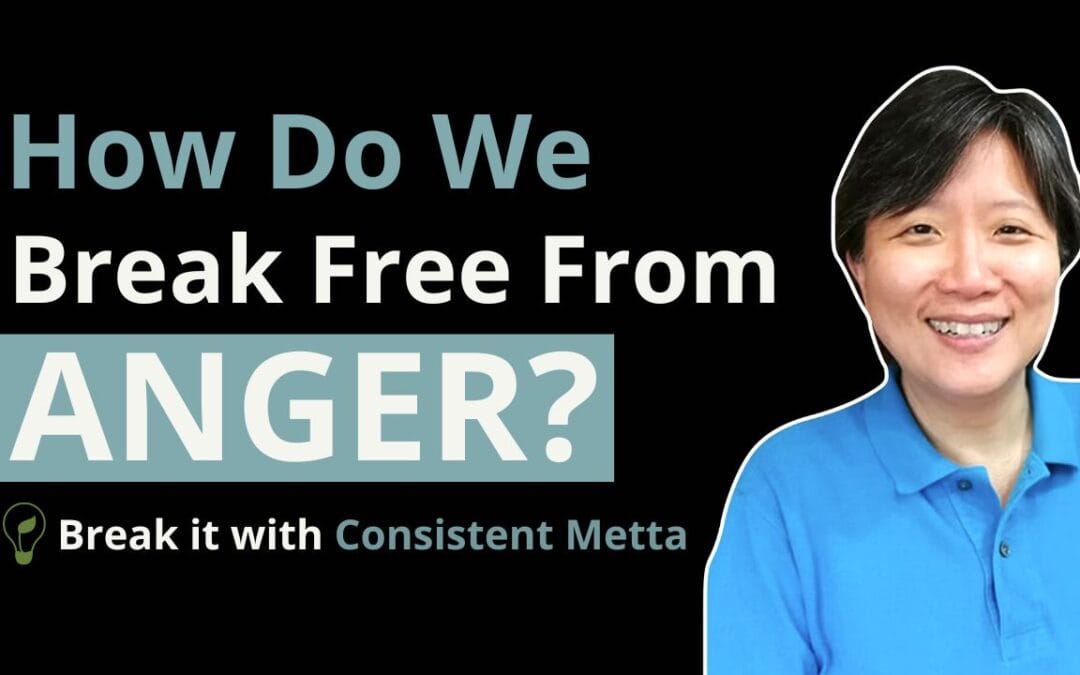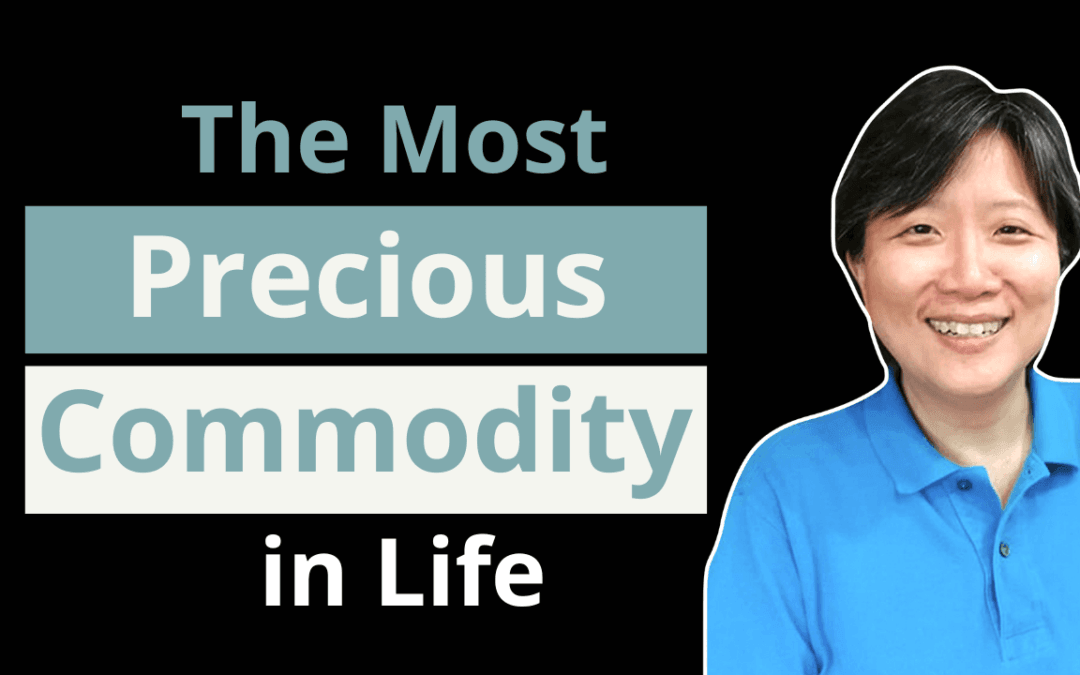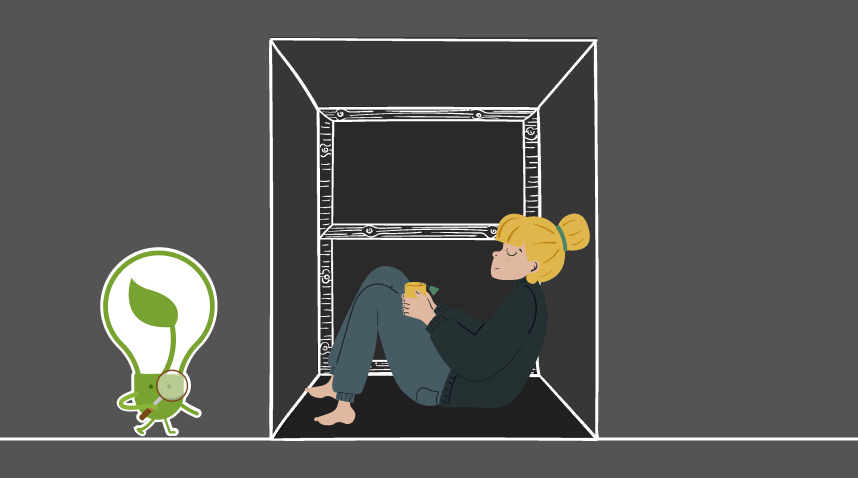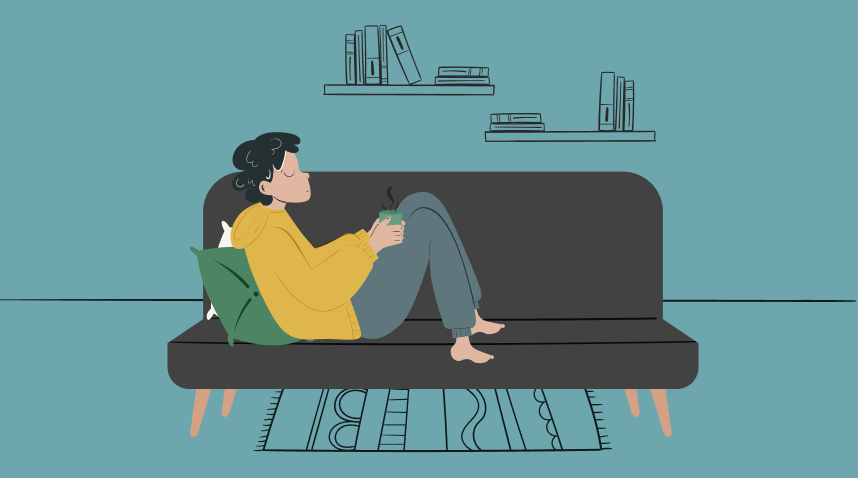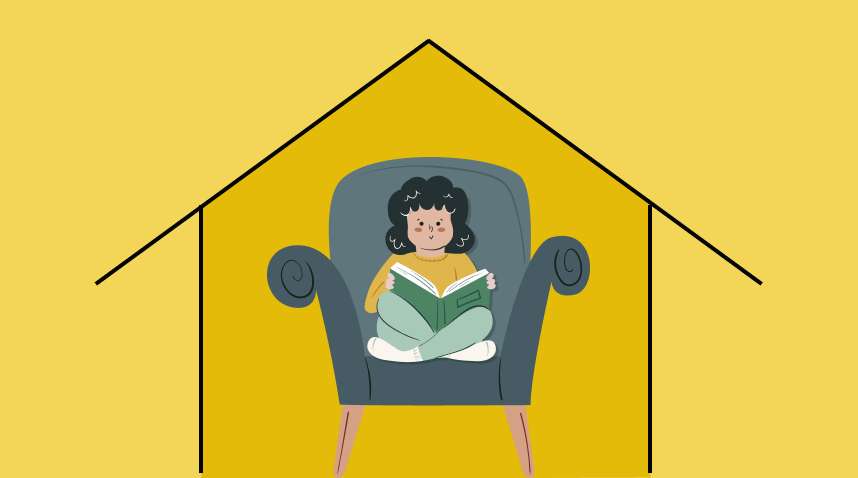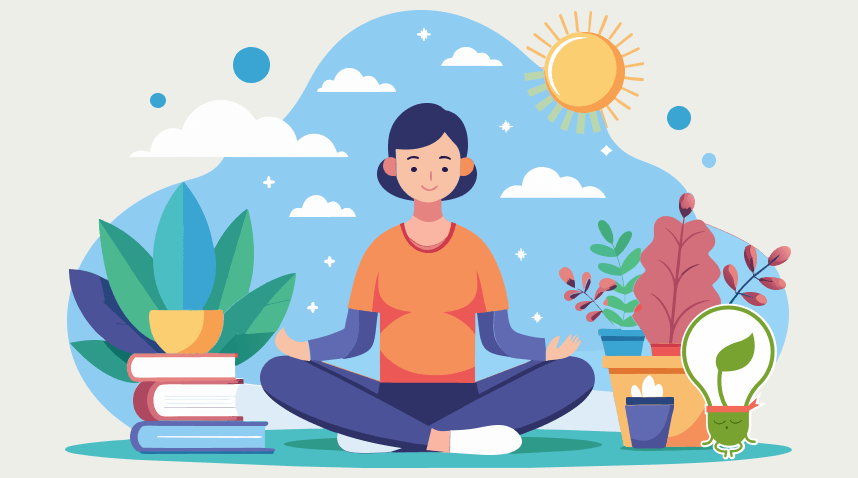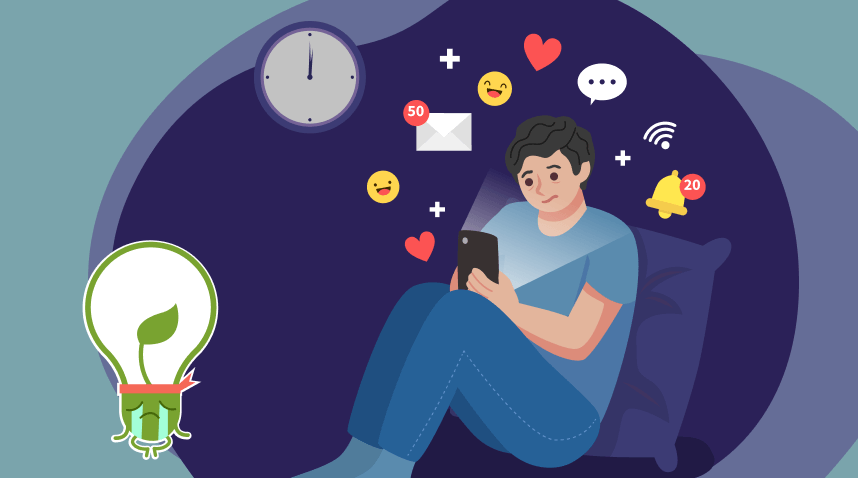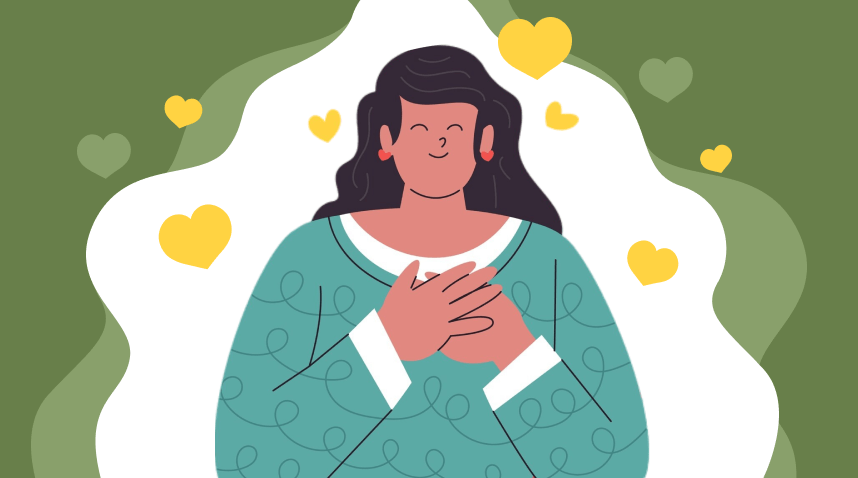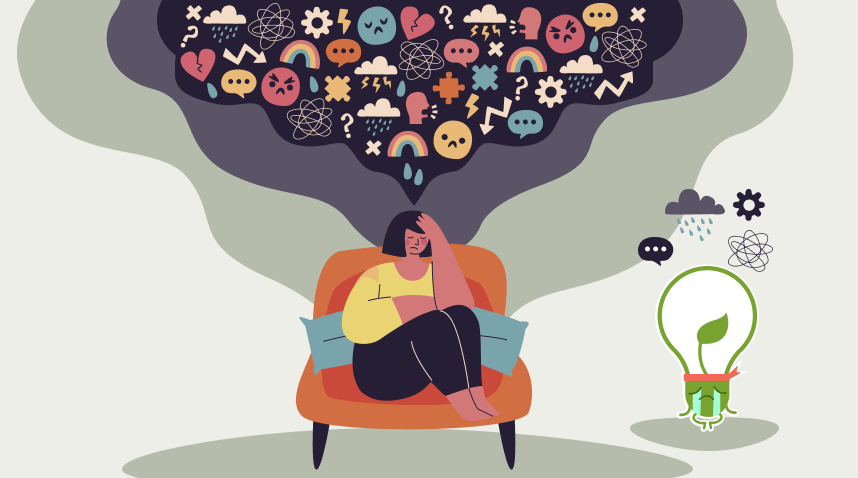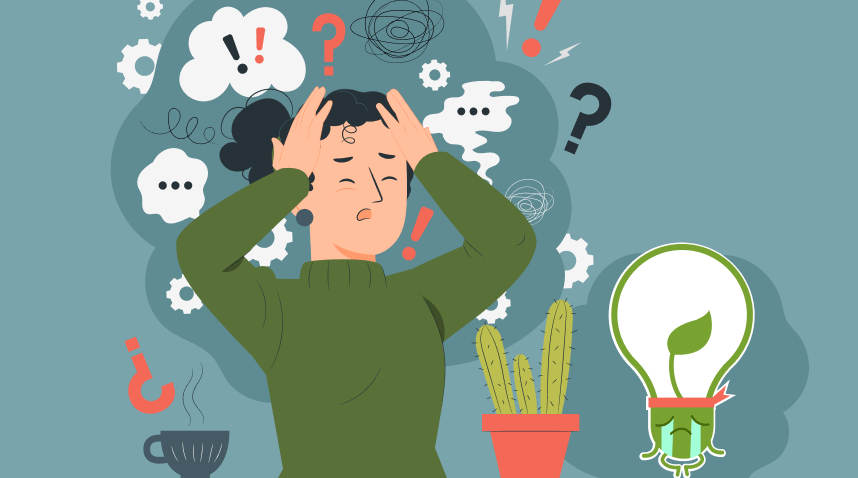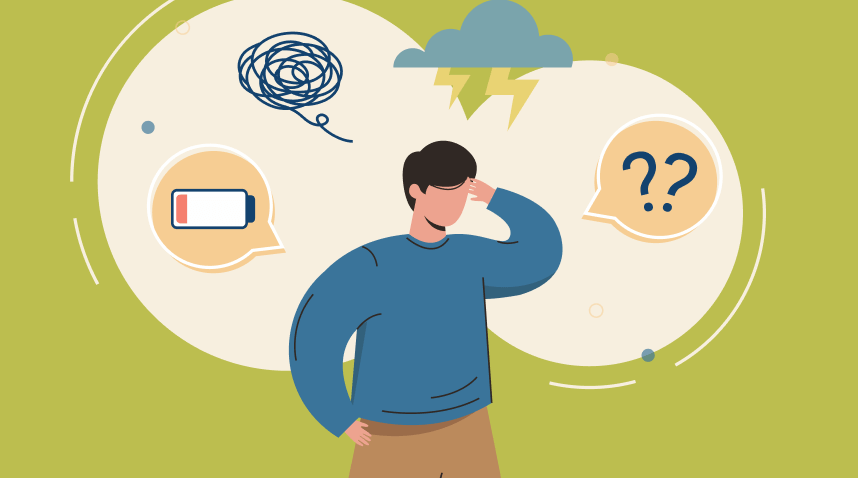In this captivating podcast episode, Dhamma expert Sister Sylvia offers profound wisdom on navigating the complexities of a chaotic world. From understanding how human instincts drive us to judge others to learning the art of letting go, Sister Sylvia shares practical Buddhist principles for fostering mindfulness and compassion. This conversation is not just about surviving life’s storms—it’s about thriving through deeper self-awareness and spiritual practice. Dive into this episode to discover how to overcome expectations and free yourself from unnecessary suffering.
Sylvia Bay has been dedicated to the study and practice of Buddha’s teaching since 1992. She graduated with a B.A. (Hons) First Class, in Buddhist Studies, from the Buddhist and Pali University of Sri Lanka in 2000 and joined the teaching staff of the Buddhist and Pali College (Singapore) in 2001. Since 2002, Sylvia has also been a regular speaker on Buddhist doctrine, Buddhist history, and the practical application of the Buddha’s teachings in daily life, at the invitation of various Buddhist organisations in Singapore. She published her first book in May 2014: the 1st volume of a 2-part series on the life of the Buddha which is titled, “Between The Lines: An Analytical Appreciation of Buddha’s Life”. Volume 2 was launched on Vesak day of year 2015. Sylvia also holds a B.Soc.Sci (Hons) from NUS and a Masters in International Public Policy (M.I.P.P) from School of Advanced International Studies (SAIS), Johns Hopkins.
Sister Sylvia explains how judgment stems from our survival instincts, which often push us into a cycle of assessing others as threats. Understanding and regulating these instincts through mindfulness can help us replace negative reactions with compassion and wisdom.
Reflecting on impermanence and death is a powerful tool for aligning with the Dhamma. Recognizing that life is temporary allows us to let go of trivial conflicts and focus on living mindfully with kindness and purpose.
Mindfulness isn’t just about observing the external world but about monitoring our internal reactions—feelings, judgments, and narratives. By mastering this, we can transform negative emotions into positive, constructive responses that benefit both ourselves and those around us.
Full Transcript
[00:00:00] Cheryl: Welcome to the Handful of Leaves episode. I am Cheryl. Today our topic is how to deal with an insane world and how to let go of expectations of other people.
I aspire to practice doing good, take the five precepts, avoid evil and purify our minds. How can we practice in such a way that we don’t suffer over our expectations? We will begin with this “Let’s Be Real” question of the day, which is everyone judges, so how can we be less judgy?
The guest is Sister Sylvia, she’s an experienced Dhamma speaker, practitioner and scholar, she has a lot of experience in Dhamma practice. I’m very excited to invite her. Welcome, Sister Sylvia.
[00:00:39] Sis Sylvia: Hello. You have asked a very pertinent question.
If I want to be a Dhamma practitioner, I need to do all the good things and avoid, all the negative, words, conduct. Amongst the many things that I must avoid include being less judging. Being judging is a very natural human instinct.
For the longest time through many lives, we have “survived” and thrived through ignorance. Actually it is because we are ignorant. We, humans, operate very instinctively. Part of our instinct is to protect this person.
I call it number one.
[00:01:23] Cheryl: Number one.
[00:01:23] Sis Sylvia: You protect number one by trying to suss out the threat. And then you deal with threats by either beating them up, pushing them away, or you run away. Fight or flight. That has been the instinct of all living beings.
If we perceive that the threat can be handled by just fighting, the odds are you will fight. Why would you flee? Fighting requires churning of adrenaline. I said all these things about churning of adrenaline, learning to fight people and so on and so forth. It’s really because all of us are underpinned by certain instincts.
We call it (Lobha), Greed, (Dosa), Anger, Delusion, (Mohā). As long as we have (Mohā), Delusion, our instinct is, I see a threat, I will fight you. In my view, judging is part of threat assessment. If you “judge” someone to be no threat, helpful, can serve my interests, you’re still judging. If you perceive that way, you are inclined to lean closer to that person.
If you perceive that this is someone who can threaten your interests, cause you displeasure, pain, inconvenience, then you are judging. You will judge critically. You will say, I don’t like this person. And then in your mind, you cite all the negative “behavior” to justify your feelings.
But your feelings are all about what you perceive to be a threat.
You want to learn not to “judge” critically. You will judge, but you try to judge not critically in a way that triggers your anger, your greed. You want to assess in that way. In my mind, you will need to have a very steady, almost instinctive arising of mindfulness.
[00:03:30] Cheryl: Can you explain to me the difference between perceiving, judging, and judging critically?
[00:03:37] Sis Sylvia: Perceiving is natural because the word perceiving means I “recognize” something. I label, I know what it is. That is part of perception.
In Pali, we call it (Sañña). Any data processed through your sense bases, sitting on learned memory. So your sight, your hearing, somebody’s voice, sound, what I smell, taste, touch, and of course there is mind.
But any of these data process through your sense bases, you recognize, you know, you label it. That is perception. It is a function of the mind. That’s all. It enables you to recognize what’s there. You recognize it. Once you recognize, you must decide what to do with it. It’s a mechanical thing. When you recognize, because it sits on learned memory, the memory you had of whatever is pleasant. You recognize it, delight will arise.
[00:04:49] Cheryl: Naturally.
[00:04:51] Sis Sylvia: Naturally. It is natural because it literally sits on learned memory, otherwise you won’t recognize it.
Anyone, born after the smart devices come into play, you’re born after that, you live your world through that, you will not know how to use a dial phone. You look at a dial, the rotary phone, you won’t know what to do with it.
You will see numbers and you say, what is this about?
In fact, the other day I saw a little TikTok thing where the father was trying to tell the the daughter. “Use it. Call this number.”
The daughter doesn’t know, she doesn’t recognize it.
In her memory, there isn’t such a device. If you had not had an experience with something, you won’t recognize it? In your perception, there’s nothing there. Now that is perception. In the perception, there will be feelings, feelings and perception come together.
In the arising, the perception you recognize, then there is a strong feeling, strong pleasant, strong painful, unpleasant. If it’s neutral, you will not remember, but if it’s strong pleasant or strong painful, you will remember, and then you will store it as good or bad, desirable, not desirable.
I want more of this. Or I don’t want that. All this will come with it. So when you look at something, immediately, instinctively, undesirable, I don’t like it, this must go away. Then you’re judging critically. That’s when you’re critical.
When you are “judging”, “assessing”, is this to my benefit or not? How does this help me or not? Or is it going to be harmful? That instinct is natural. You want this instinct to stop or halt or not be so quick. You need to have mindfulness. The mindfulness is not about outside. It’s about inside.
Mindful of your feeling, mindful of how your mind leaps to conclusion, mindful of how your mind wants to make decision, wants to react, mindful of that part, not mindful of what is out there. I’m mindfully looking at this person walking. No, no, it’s not that. It’s mindfully looking at your mind and your feeling and your commentary on what’s going on out there.
Stop being critical, stop” judging” negatively with anger. You have to watch your feeling, you have to see that it is detached and so it is neutral. The feeling is neutral. There is no arising of strong feelings. You just watch it.
You’re mindfully watching how the feeling stays neutral. If there is an arising of unpleasant, you don’t go look at the object out there. You look at the feeling and look at perception. Why is it unpleasant? If you can, because you’re mindful, you will switch it to wholesome, to compassion.
This is changing your own narratives because when you see something unpleasant, the instinct is to judge harshly, to say, this fellow is not nice. He’s being mean. He’s being cruel.
Your anger will engage because fight or flight. It is a human instinct, but you don’t want that to happen. You want to be of help, you have to change the narrative into something positive. Mindfulness enables you to turn it into something positive, more constructive. You will say to yourself, “This person has a bad day. This person is in a lot of pain. I don’t want to add to his pain. I engage him, there will be pain all around. Anger all around. I don’t want to do that.” One way of talking is using mindfulness.
You can use any of the wholesome mental states, but you must convert it. You must convert to a wholesome mental state. You can convert using patience, Metta, faith.
The Buddha’s Dhamma says to always extend friendliness, to not give in to this anger and agitation. The Buddha remind us that we will live and die. Everything is impermanent. Mortality is real. So when you have this kind of reflection, you are able to remind yourself, keep cool, keep detached, don’t get engaged.
Mortality is very powerful and this one is using wisdom and faith. Why this is wisdom and faith?
If I believe in the Dhamma, I want to call myself his disciple. I totally say I am his disciple.
If you want your teacher to be proud of you, you cannot just give in to your craziness. Your teacher will be proud of you if he knows that you have tried your best to practice in accordance with his Dhamma. His Dhamma says avoid evil, do good, purify mind.
Then you say, okay, I must purify my mind. I will not react. That is through faith.
Through wisdom, the teacher says that you need to keep reflecting on mortality, impermanence. I will grow old, I will fall sick, I will die, and I will be separated from the people I love. The only thing I bring along is my Kamma.
Your daily reflection will change, it will start to shift your instinct.
[00:10:27] Sis Sylvia: Think about yourself having been diagnosed with end stage cancer.
If you’re in that state, you think you’ll be petty? You think you’ll fight back?
[00:10:36] Cheryl: No, because I could die any moment.
[00:10:39] Sis Sylvia: You will die any moment. The Buddha himself said, it’s very powerful. It will be of great benefit to you if you do this five reflections.
You will reflect on the five themes. You go to bed, you say thank you for one more day of life. If tomorrow I wake up, I will remember to honor the Buddha by doing good, by walking the Dhamma path. Therefore, leaning towards wholesome, leaning away from unwholesome.
It’s a reminder.
A human is wholesome. It’s because of wholesomeness that got you a human rebirth.
[00:11:17] Cheryl: But why are there so many humans who are unwholesome?
[00:11:20] Sis Sylvia: When they come into this world, they’re okay.
But over time, because of ignorance, they learn all the wrong things. They are told by the conditions around them that “You should stand up for your right.” Isn’t that what we’ve been told?
“You do not become a softy because people will bully you.” Isn’t that what we are told? Some of us will be taught, if people push you, you must push back.
You have wrong teaching around you, perpetuated by people who care for you, unfortunately. Because they care for you, they say they don’t want to see you being bullied. So their advice to you is, “Stand up for your right. Fight back.”.
I am not saying you be a wimp. I’m saying you hold the mental states and not respond.
[00:12:16] Cheryl: Can I share an example on why I think that it’s very difficult. I see my parents getting very angry. Let’s say they have the tendency to want to fight back with the neighbor, a lot of anger, a lot of hatred because they believe that’s the way to win and be strong in life.
For me, the frustration would arise because my intention is to be helpful. But then whatever that I try to teach them, it goes way past their heads.
[00:12:41] Sis Sylvia: You don’t teach.
I am serious, you don’t teach.
[00:12:43] Cheryl: Is that loving them? You let them suffer?
[00:12:46] Sis Sylvia: You don’t try and share Dhamma when a person is not ready to hear, we don’t go around and try and get another to hear us.
When you try to get someone to change, you have wanting. Therefore you are in pain. The Four Noble Truths, when you have desires, you will have (Dukkha) suffering. If you have acceptance, you will experience the cessation of (Dukkha).
We suffer because we want them to change. You don’t have to want them to change. You just have to stand by your money in case you go to pay indemnity.
In order for character change to happen, you need five conditions. And this one not said by the Buddha. I just tell you the five conditions from worldly experience. But I’m sure the Buddha will approve.
[00:13:45] Sis Sylvia: Condition one, is you must have self awareness. You don’t think you have done anything wrong. Nothing is going to work. There must be a recognition there is a problem. You recognize it. Some people recognize it, don’t want to do anything. Finish. Game’s over.
You recognize there’s a problem. You want to fix that problem. There must be a will, a desire to fix the problem. You must know the steps to fixing the problem. Then you must put in effort to fix the problem. Imagine a case, where I have self awareness. I know there’s a problem. I want to go and fix it. But I’m very lazy. I also don’t know how to do it. Nothing happens.
If I say I got a problem, I want to go and fix it, I’m going to work very hard. But I have no self awareness. I don’t know what that problem is. I already know that I think I got a problem because people don’t like me. It must be a problem. But I don’t know what it is.
Self awareness, meaning you know what is your problem. You know what you must fix. Then you want to do something about it. You want to.
I got anger management issue. I go and sign up for anger management courses. They teach you the steps. Then you learn very hard. Then you try. And that’s some days you fumble and then you give up. So the will must come in.
What’s the fifth one?
I’d say there are five, right? The fifth one is you have someone to cheer you on.
That (Kalyāṇa-mitta).
Because humans are social creatures. They can be changed for the positive, beneficial, or they can be flipped the other way. If they’re very strong will, and they have very strong moral compass, you cannot shift them. But if their will is not very strong, not very strong moral compass, a bit flimsy, a bit scary and then it will shift.
If they didn’t think they’ve done anything wrong, game’s over. You try and change them. They are going to get angry with you. You might as well just sit down there and as I said, get your money ready in case you got to pay indemnity.
Then you say, well, then what can I do? How can I help? You help by walking the path and becoming a happier successful person.
[00:16:05] Cheryl: That is a long term thing though. Like how does it help the problem?
[00:16:09] Sis Sylvia: The immediate problem will take time to solve. Now let me explain why you must be the representative of the teaching.
At some point they will realize that they are in trouble. When that will happen depends on their own wisdom. Their own awakening. When they realize that they have a problem, they will look around for a solution. If you are successful, because our material base lay world applauds success.
If you are a lay person, you want to share the Dhamma.
But people around you say that you don’t have education or your education not very high, can’t really speak very well, you get people very confused by what you’re saying. But you’re actually not bad. You’re very wholesome. They might like you as a person. They ‘re not gonna learn from you. Especially if you perceive that you’re not very successful, they won’t want to learn from you because you’re a lay person.
If you’re a Sangha, what kind of teacher you want to follow?
[00:17:14] Cheryl: Enlightened teacher.
[00:17:16] Sis Sylvia: Enlightened teacher, because the definition of success is a calm, peaceful, serene, light hearted person.
He must have got it right. This one very good. Look at how calm he is. How light he walks. Oh, I like it. But he’s Sangha.
If you’re a layperson, you try to work hard to provide for your family and all, but people find out that you’re in debt half the time.
They will still label you as not very successful. Then you have to tell them to, avoid evil, do good. Avoid evil, do good. purify your mind, but who are you to tell me? You can’t even get your act together.
You can’t even get your life together.
[00:17:56] Cheryl: Element of respect towards a lay teacher is very important.
[00:18:02] Sis Sylvia: Respect is an extremely important condition for learning. I will learn from you if I respect you. I must respect you for various things.
One is for your knowledge. Two, I must believe that you choose to walk away from wealth and material success. Even as a lay teacher, you are not poor because you fail in your profession. You lead a simple life by choice. I’ll respect you.
Humans are very judging, unfortunately. We will use all kinds of benchmarks to gauge as proxy gauge to our calculation of whether or not so and so is worthy of me following them. I’m not saying I am like this. I’m just saying that humans think like that. The Buddha said, the three kinds of people in the world, right? The fully blind, the full sighted, and the one eyed.
What is blind? You are dismal failure in your material, secular lay life. You’re dismal failure, and spiritually you have nothing. You’re blind.
[00:19:17] Sis Sylvia: If you are a roaring success in your secular life. So materially you earn a lot, buy a house, buy a car, but spiritually you run on an empty tank. Buddha said is one eye.
What is fully sighted? Full sighted. Two eyes. You’re both successful in your material secular life and spiritually you are also doing good. That’s full sighted. So you stay in a lay life. It is okay to earn a good living, provide wealth for your family and have some of the trappings of a successfully lay life.
It’s perfectly okay. Just make sure that how you earn your living didn’t cause hurt and harm to another.
[00:20:08] Cheryl: I think there are a lot of one-sighted people at the workspace. What can we do to maintain our integrity and stay steadfast in our values in environments where even the dishonest behaviors are not only prevalent, but also encouraged?
[00:20:28] Sis Sylvia: One very wrong assumption is that, You have to break precepts, like you have to tell a lie, you have to compromise on your values and principles to secure your success.
I consider that a wrong assumption, totally wrong. Let me ask you this. You have a business deal with somebody. He makes you good money, but then you found out that he cheated you. You’re going to do business with him?
[00:21:02] Cheryl: Not anymore.
[00:21:04] Sis Sylvia: Not anymore, right? The odds are a lot of people would like, I find out you cheat. I’m not going near you. And you’re going to tell people that there will be someone who will like make sure that he is caught.
Now let’s say he didn’t cheat you. But you found out that he’s a womanizer or she is unfaithful in marriage. There will be a part of you that says, he hasn’t done me any wrong, but I really don’t trust him now. So that will affect his business, right? Social standing. He’s a doctor, a lawyer, a professional.
He either siphoned some money. Or worst, all he did was caught with drunk driving, then he flashed all over the newspaper. Can you imagine how all of these is going to end up in the social media, into the newspaper, everybody having a view.
Your reputation as an honest man, you can earn less, but your principle, actually stands you in very good state.
[00:22:02] Cheryl: Why is it so common that everyone lies in the workplace?
[00:22:06] Sis Sylvia: Not common. People may or may not lie outright, but they will fudge the truth. They make it murky. The reason why people do that is either because it usually for an honest man to suddenly tell one lie, it has to do with fear. The fear can be very simple. This inconvenience, I don’t know how to deal with it, I don’t know what to say. Then it’s easier to make it vague. Because we fear, you’re afraid being scolded. You’re afraid of people telling you off, you fear losing the business.
That is fear. If you are honest, you treat people fairly and you are candid in the way that you explain things. People trust you. And once there is that trust, then you will find many doors open. Many people want to do business with you, want to engage you, want to deal with you because they know they can trust you.
Trust is extremely precious commodity. That’s the one that gets you that extra mile ahead. Not the conniving and maneuvering, playing games, fudging troops. Those are the things when you are found out, that’s it, you know. Your reputation is over. Even if it’s a very small thing, people will talk.
If you have a reputation of being fair minded, an honest broker, frank and sincere in your dealings, respectful and considerate.
He will suffer some losses, but he’s prepared to do that. This kind of people will have a very good standing. The Buddha will call it, in an assembly, he is respected. And it may be slow, but steadily, he will gain his ground. I’m very confident about this.
[00:24:11] Cheryl: Contemplate on the benefits of keeping to our five precepts, the long term benefits, in terms of this life and the next life as well.
And to really think about the drawbacks of not keeping your precepts and what happens like when your lies or your misconduct gets out in the open.
[00:24:30] Sis Sylvia: To me, five precepts is the lowest bar possible. Because five precepts in the traditional rendition of it, right, I undertake to observe, uphold, hold on to the precept of not taking life.
I undertake to observe precepts of not taking things not given. And this is all the, I will not do this wrong thing. To me as a very low bar, minimal bar, actually it should go into the flip side. I not only not take life, I will uphold, I will look after, I will protect, I will support life.
Not only it’s not about taking, it’s also about giving, being generous. It’s not just about sexual misconduct, abstaining from it, but it is to honour, respect relationship. Keeping your promises. It’s about speaking truth, being honest, in and out, in means inside here you are upright.
You’re telling yourself the truth because this one is very powerful because the practice is about seeing reality as it is, which means the mind needs to straight away the fuzziness, all those illusions and delusions of life. You’ve got to cut the natural instincts of the mind to overlook truth.
We always talk about reality as it is, but what does that mean? Seeing the impermanence of the aggregates, the (Dukkha), the suffering, seeing the (Anattā), soullessness or substance-lessness of the aggregates and the sense bases.
We go to bed at night, assuming we will wake up tomorrow. Correct.
[00:26:31] Cheryl: Yes.
[00:26:32] Sis Sylvia: Who goes to bed saying tomorrow I will be dead?
[00:26:33] Cheryl: Nobody.
[00:26:34] Sis Sylvia: One night. This is only one night which means you won’t die. Every night you go to bed, assuming you will live through, you wake up tomorrow and you live through the day.
You have this built in instinct that life is permanent. Hypothetically, you will die, but not yet. The built in instinct is you don’t see mortality. It’s a given and we are blind to it. Why is this so important? Why must you see mortality? To see mortality is to truly appreciate (Dukkha).
I already said, if you have been diagnosed with end stage cancer, you will live with death in your face, day in day out. And so therefore it is painful. Because we don’t live with death in our face because we live in delusion of immortality. Life. We can plan, we can hope, we can dream, no pain.
You take away hope, you take away dream, you take away plan. You’re only staring at death, pain. That’s why the Buddha said, if it is impermanent, is it painful or is it pleasant? You will say Painful, right? We live life blinded by dreams, blinded by hopes and ambitions. We’re blinded.
We don’t see death. You don’t see death, you can dream, you can hope, you can plan for your holiday next time, next month down the line, et cetera. Because of that, by thinking about the plan, you’re happy. So your happiness, your joy, your delight sits on plan, dreams, hopes. If death is in your face, where are the dreams and hopes and faith?
[00:28:27] Cheryl: And because we will lose everything. And because we will lose everything with death. There’s nothing that we can really bring along with us except our (Kamma) and merits.
[00:28:38] Sis Sylvia: Except your (Kamma) and your merits.
Two straightforward, simple thing, simple drivers the average person don’t think about it. They don’t see it. They live life oblivious to these two. So when I say see reality as it is. When the Buddha said there, right? (Yathā-bhūta-ñāṇa-dassana) is nothing to do with some mystical reality.
This is the reality.
[00:29:03] Cheryl: With that, we can end this episode. For our listeners, if you enjoy this episode, please give us a five stars rating, that will really help boost our viewership and listenership. We’ll see you in the next episode. Thank you and stay happy and wise.
Buddhist Youth Network, Lim Soon Kiat, Alvin Chan, Tan Key Seng, Soh Hwee Hoon, Geraldine Tay, Venerable You Guang, Wilson Ng, Diga, Joyce, Tan Jia Yee, Joanne, Suñña, Shuo Mei, Arif, Bernice, Wee Teck, Andrew Yam, Kan Rong Hui, Wei Li Quek, Shirley Shen, Ezra, Joanne Chan, Hsien Li Siaw, Gillian Ang, Wang Shiow Mei, Ong Chye Chye, Melvin, Yoke Kuen
